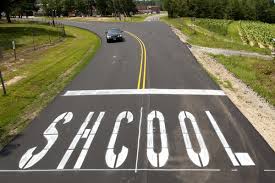I’m always on the lookout for middle-grade novels in which real, non-speculative, accurate science is integral to the story. When I find a new (to me) book that fits the bill, I’m eager to add it to my list and my presentation. I love a book that weaves science facts and concepts into the narrative, or one that uses science as a clever metaphor to echo the emotional content of a scene.
What I don’t love is when I’m pulled into the book with some beautiful science (yes, science is beautiful) and suddenly . . .
. . . a glaring scientific error slaps me in the face. I’m tempted to throw the book across the room. (Unless it’s a library book, of course. We must take good care of library books.) And I sadly cross the title off of my list.
Some people may call me a stickler, but accuracy is important to me. I can’t help it. I spent a lot of years learning how to be a scientist, and mistakes are frowned upon in science. These days, I get paid to edit scientific manuscripts and I’m the one who’s supposed to catch the errors, so I read very carefully. Maybe that’s why I’m such a slow reader.
Is it just me? I surveyed some friends what they thought of errors in what they’re reading and here’s what they said. *Results are not scientific.
- One typo is OK.
- More than one or two typos could be an indication of sloppy editing.
- One or two minor factual errors in fiction might be OK, but might lead the reader to believe the author has not done careful research.
- Factual errors in nonfiction are more problematic and undermine the authority of the author.
But who am I to complain? You’d think that after multiple passes by me, my editor, and my copyeditor that there wouldn’t be any errors in my book. You’d be wrong. When the book was released, a nine-year-old boy noticed a typo–digit was missing in pi.
I hung my head in shame.
Then I discovered another error. This one was scientific (electrical potential, not current).
*dons dunce cap*
My publisher made the corrections for the second printing. Maybe those first printings will be valuable one day, like the Inverted Jenny stamp, with the upside-down plane.
Maybe not.
Perhaps I’m being too hard on myself, and on other authors. Everyone makes mistakes, right? There are web pages (like this one and this one) devoted to the errors in the Harry Potter books. Those errors didn’t make readers love the books any less.
And scientists like Neil Degrasse Tyson and Phil Plait have listed numerous scientific errors in the new film, Gravity, but they both loved the movie.
In an ideal world, all books would be error-free. But they aren’t. Maybe we can see scientific errors as learning (or teaching) opportunities. Kids love to find mistakes that authors make. If you give a kid a book that you know has a scientific error in it, that kid will dig in to find it, and may find more errors, or may do some research to find out more about the subject. That can’t be a bad thing.
I’ve decided that if the rest of the book is well-written and engaging, and the majority of the science is accurate, I will hold my nose and add a book with an error to my list.
What about you? What kind of errors will you tolerate? How many typos are too many? How far can a story stray from scientific or historical truth for you to stop reading?
Jacqueline Houtman‘s debut middle-grade novel is called The Reinvention of Edison Thomas. She believes all the errors have been corrected, but you are free to look for more. If you know of middle-grade books that should be added to her list, let her know!







Great topic! Yes, errors are problematic especially if I get the impression throughout that the author didn’t do her research. On the other hand most things that people call me on are not science or math errors but cultural misunderstanding or situations where more than one answer is correct.
Still I do have a deliberate error in every book. A gesture to humility. And when child finds them and emails me I email back my recommendation to her teacher for extra credit in school. Its a fun game and I am slowly collecting a small club of truth finders–some of my most loyal readers.
Great post, Jacqueline! It reminds us all to do our very best to make our work as accurate and perfect as we can AND to apply the golden rule to the work of others when errors may occasionally rear their ugly little heads.
Great post! I too am an error spotter and despiser. But I will also admit that there are errors in my published works that I’m attempting to avoid in my current WIPs – of course, it will probably only leave room for me to make more (different) mistakes!
Thanks for this reminder about the importance of accuracy, Jacqueline. My current WIP is tentatively called The Science Project in which my protagonist is using the scientific method to prove that a ghost doesn’t exist in a castle. Hmmmm. I will be watching my scientific p’s and q’s extra carefully going forward!